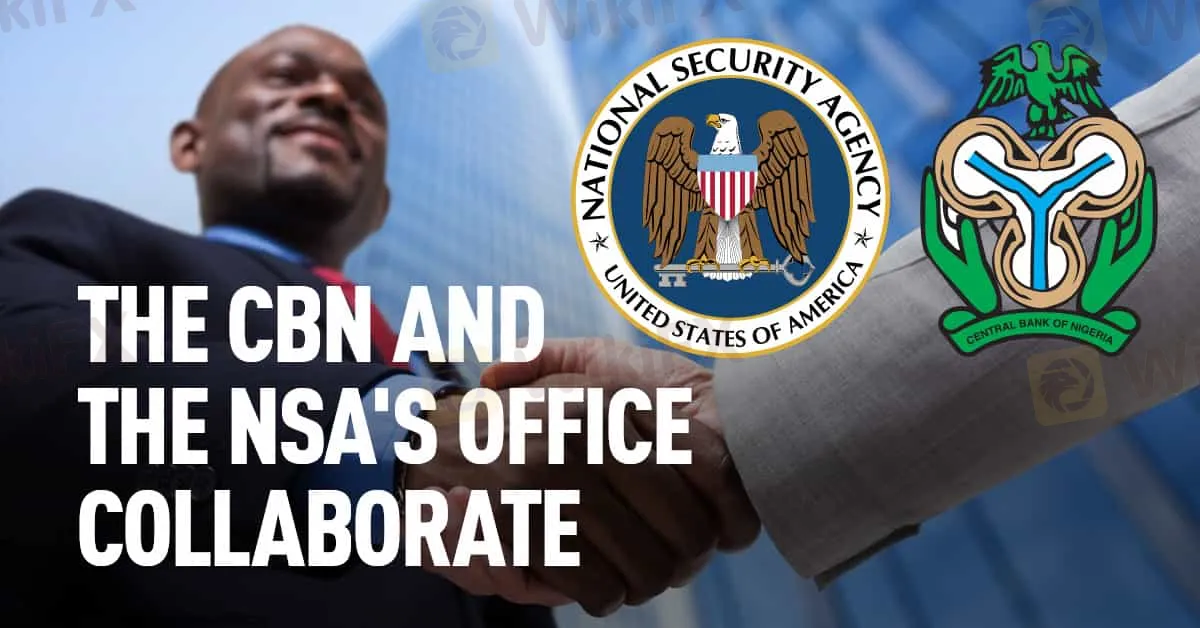简体中文
繁體中文
English
Pусский
日本語
ภาษาไทย
Tiếng Việt
Bahasa Indonesia
Español
हिन्दी
Filippiiniläinen
Français
Deutsch
Português
Türkçe
한국어
العربية
TO FIND FOREX SPECULATORS AND ECONOMIC SABOTEURS, THE CBN AND THE NSA'S OFFICE COLLABORATE.
Abstract:"The primary objective of this alliance is to identify, investigate and penalise individuals and organisations involved in wrongful activities within the Forex market."

“The primary objective of this alliance is to identify, investigate and penalise individuals and organisations involved in wrongful activities within the Forex market.”
In the announcement below, the Office of the National Security Adviser said that it will work with the Central Bank of Nigeria to stop foreign exchange speculation in the nation.
According to a statement from the Office of the National Security Adviser's chief of strategic communication, Zakari Mijinyawa, the action is a component of measures to stabilize the economy and bring order back to the country's foreign exchange market.
The Central Bank of Nigeria (CBN) and the Office of the National Security Adviser (ONSA) are working together to solve issues affecting the country's economic stability in an attempt to protect Nigeria's foreign exchange market and stop speculative actions.
It is admirable that the CBN has taken aggressive steps to stabilize the foreign exchange market and boost economic activity.
However, the actions of local and foreign speculators acting through a variety of channels are undermining the efficacy of these attempts and aggravating the depreciation of the Nigerian Naira, as well as adding to inflation and economic instability.
Remember that the CBN implemented a comprehensive strategy to improve the liquidity in the foreign exchange market in response to the volatility of exchange rates. This strategy included the unification of market segments, the settlement of outstanding foreign exchange obligations, the introduction of new operational mechanisms for Bureau De Change operators, the enforcement of the Net Open Position limit for commercial banks, and the adjustment of the remunerable Standing Deposit Facility cap.
The Economic and Financial Crimes Commission (EFCC) has established a 7,000-man special task force across its 14 zonal commands to crack down on dollar racketeers in an effort to relieve pressure on the naira.
However, recent intelligence assessments have shown that there are still illegal activities taking place in the Nigerian foreign currency market. As a result, the ONSA and CBN are working together to address these violations. Coordinated efforts with important law enforcement organizations, such as the Nigeria Police Force (NPF), the Nigeria Customs Service, the Economic and Financial Crimes Commission (EFCC), and the Nigeria Financial Intelligence Unit (NFIU), would be part of this cooperation.
The principal aim of this partnership is to methodically detect, delve deeply into, and suitably punish individuals and entities implicated in illicit actions inside the foreign exchange market. Through the utilization of these institutions' knowledge, our goals are to prevent unscrupulous activities, safeguard investor interests, and encourage sustainable economic progress.
This cooperative endeavor highlights Nigeria's government's dedication to enhancing its Anti-Money Laundering and Counter Financing of Terrorism (AML/CFT) system and removing the country off the Financial Action Task Force's gray list. The nation's economic well-being will also be advanced, investor trust will be fostered, and a stable and transparent foreign exchange market will be ensured.
The main players in the futures market are speculators. Any person or business that takes on risk in the hopes of making money is considered a speculator. These profits are available to those who engage in low-cost and high-value trading.
Speculators profit from changes in currency exchange prices in the foreign exchange market. For instance, a speculator may purchase the EUR/USD pair in the hopes that the euro will appreciate in value relative to the US dollar. The trader may be able to sell the pair at a profit if the euro does truly appreciate.

Disclaimer:
The views in this article only represent the author's personal views, and do not constitute investment advice on this platform. This platform does not guarantee the accuracy, completeness and timeliness of the information in the article, and will not be liable for any loss caused by the use of or reliance on the information in the article.
Read more

The Hidden Checklist: Five Unconventional Steps to Vet Your Broker
Forex broker scams continue to evolve, employing new tactics to appear credible and mislead unsuspecting traders. Identifying these fraudulent schemes requires vigilance and strategies beyond the usual advice. Here are five effective methods to help traders assess the legitimacy of a forex broker and avoid potential pitfalls.

Doo Financial Obtains Licenses in BVI and Cayman Islands
Doo Financial, a subsidiary of Singapore-based Doo Group, has expanded its regulatory footprint by securing new offshore licenses from the British Virgin Islands Financial Services Commission (BVI FSC) and the Cayman Islands Monetary Authority (CIMA).

CFI’s New Initiative Aims to Promote Transparency in Trading
A new programme has been launched by CFI to address the growing need for transparency and awareness in online trading. Named “Trading Transparency+: Empowering Awareness and Clarity in Trading,” the initiative seeks to combat misinformation and equip individuals with resources to evaluate whether trading aligns with their financial goals and circumstances.

Malaysian-Thai Fraud Syndicate Dismantled, Millions in Losses Reported
The Royal Malaysia Police (PDRM) has received 26 reports concerning the Nicshare and CommonApps investment schemes, both linked to a major fraudulent syndicate led by a Malaysian citizen. The syndicate’s activities came to light following the arrest of its leader by Thai authorities on 16 December.
WikiFX Broker
Latest News
Top 10 Trading Indicators Every Forex Trader Should Know
ASIC Sues Binance Australia Derivatives for Misclassifying Retail Clients
WikiFX Review: Is FxPro Reliable?
Malaysian-Thai Fraud Syndicate Dismantled, Millions in Losses Reported
Trading frauds topped the list of scams in India- Report Reveals
YAMARKETS' Jingle Bells Christmas Offer!
AIMS Broker Review
The Hidden Checklist: Five Unconventional Steps to Vet Your Broker
WikiFX Review: Something You Need to Know About Markets4you
Revolut Leads UK Neobanks in the Digital Banking Revolution
Currency Calculator



